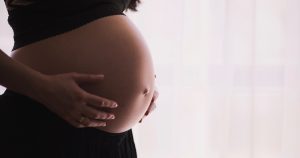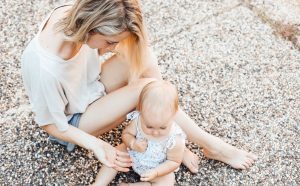Care-experienced young people are more likely to become parents at an early stage of their lives than children who don’t have any experience of care. Some research has been carried out on care-leavers parenthood experiences, but the subject of adoptee’s experiences of becoming a parent has been identified as a very much under-researched area. However, it is a topic that has started attracting more attention. I recently attended ICAR 4 (International Conference on Adoption Research) in Montreal, and one of the sessions I went to was entirely dedicated to this topic, and led by Professor Elsbeth Neil from the University of East Anglia. She has recently received funding to run a study on the experiences of adoptees who become parents, and adoptive parents who become grandparents. We are looking forward to hear more from this very important study, and in this short blog post, we’d like to share what we have found so far in our study in terms of parenthood experiences, but also future expectations of parenting.

So far, 47 young people (aged between 18 and 23) and/or their foster/kinship carer/birth/adoptive parent have been recruited into the study. Of them, nine (19%) are parents (3 were in foster care, 2 subject to RO, 2 in kinship foster care, one adopted, and one living with birth parents) and another two girls (one in kinship, and one subject to a RO) reported being pregnant with their first child at the time of the interview. Five of the young parents were girls and four were boys. Their circumstances are quite varied. Only one of them was adopted, and her child was currently being cared for by the child’s adoptive grandparents. Five were living with their children, and the three who were not, visited them regularly except for the adopted seventeen-year old, whose visits to her adoptive home were sporadic and irregular. She became pregnant at 14 years old, and at least two others had been as young as that too. In the case of the other two fathers not living with their child, the child’s mum was the one living with the kid. One young dad had lived with his child and girlfriend but the boy had tragically died when he was two, and at the time they were expecting another baby. Only one of the young parents had two children, the other eight had one.
All the six young parents who we have talked with so far (in the 3 other cases, we only talked with their carers/parents) identified their children as key people in their lives, talked warmly about them, and were overall happy to be a parent. They described becoming a parent as a key positive turning point in their lives.
“When I woke up [after the C section] and they said ‘Look, it’s a boy’, I was like ‘Get him away, I am too sore. Give me medicine’, but yeah, that was the happiest time. Because then I finally found, you finally find what true love is when you have a baby, you know.” (Anna, 20 years old, raised in foster care)
They were all trying to do the best they could for their children. They reported that their families (either being foster, adoptive, birth or kinship) were very supportive and loved their child. Despite that, some also talked about the challenges of being a young parent. For instance, Belinda, who was raised by her grandparents, became pregnant at 14, and had a four-year old daughter. She had moved out of her grandparents with her child, but visited her grandparents every day. She said that she liked being a parent but also talked about it as being demanding for a young person:
“I think with having a wee girl not being able to go out as much with your friends and I do find it difficult to get her minded. …”

Other young people who were not parents themselves talked about their expectations for the future. Most focused on career and job aspirations, but a few also talked about having children in the future. For instance, James, who was living with his foster parents, when asked directly if he could see himself having children, he answered that not at this time, not until he felt ready to look after one:
“I don’t want a child yet, not until I am stable. Because I have always said I don’t want to bring a child into somewhere where I can’t look after it the way no one could look after me. So I want something there for my child, to give it everything that I was never given. I have always said that from day one.”
Janette, who was also raised in foster care, and still visited her foster family every day, said that she had always wished to be a mother someday. However, she had this fear that her parenting would be scrutinised by social services, as she was in care herself:
“I’ve always had that fear because I’ve been in foster care, I’ve always had that fear that my child might be or I might be absolutely tortured by social services, and my boyfriend is going ‘Wise up! You’ll not, they’ll not torture you’.”
This is just a wee summary of what we have found so far, but we are expecting to be able to update that post in a year’s time with a lot more experiences of parenthood for our group of young people. Hopefully, we can then make comparisons with findings from other studies, like the ‘From care, to adoption, to parenting’ study, mentioned at the start of this post.
……………………………………………………………………………………………………………………………….
Photo credits: Photo 1 by Freestocks on Unsplash; Photo 2 by Katie Emslie on Unsplash
